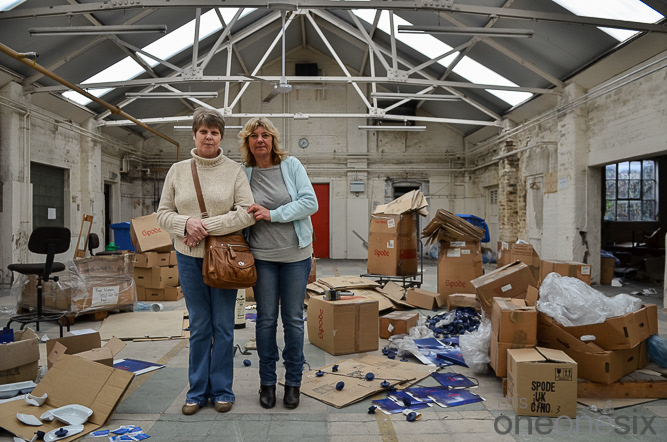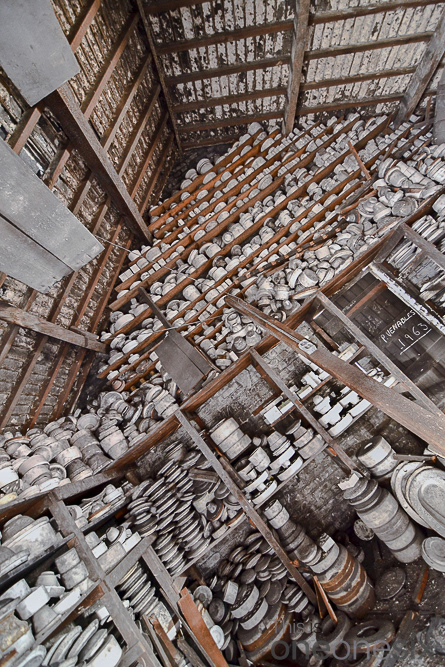East West
The old Hanley bus station, built in the 1970s on Lichfield Street, served as the city’s main transport hub for decades. By the 2000s it had fallen into decline, paving the way for Stoke-on-Trent’s £15m replacement on John Street. The new bus station opened in March 2013, and the original site was later cleared for redevelopment.

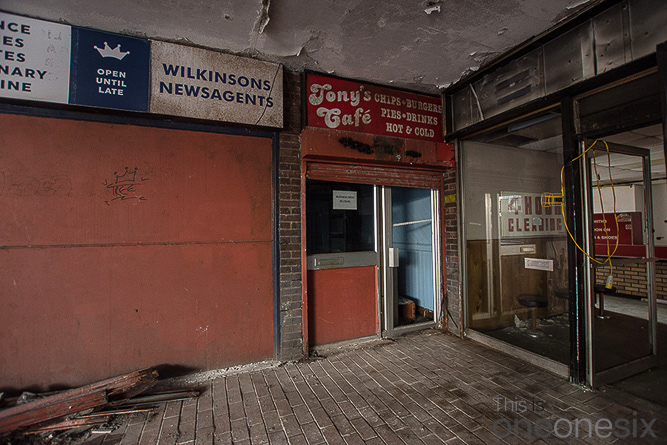


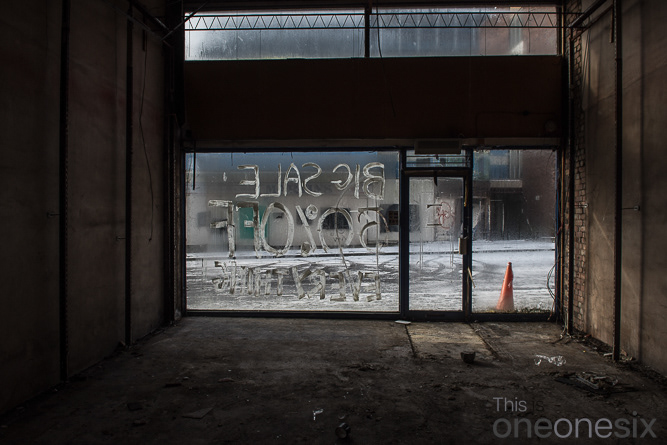

Goss Works
Established in 1858 by William Henry Goss, the Goss Works began as a pottery factory in Stoke Town, producing ivory porcelain, Parian, and earthenware. In 1870, the company relocated to the Falcon Works, where it became renowned for its souvenir and commemorative ware, particularly Goss crested china, small porcelain models featuring the coats of arms of various places. This innovation capitalized on the growing popularity of travel and tourism in the late 19th century.
In 1929, the business was acquired by Cauldon Potteries, and in 1934, it was renamed Goss China Co. Ltd. Production ceased in 1944, and the factory was sold to Portmeirion Potteries in 1961. Despite its closure, the legacy of Goss crested china endures, with collectors valuing these pieces for their historical and cultural significance.
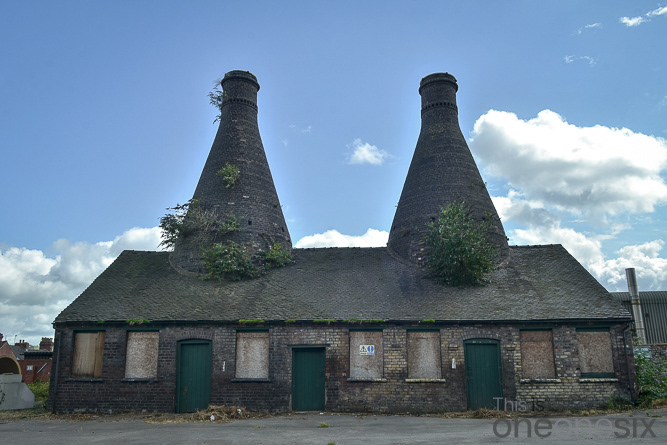
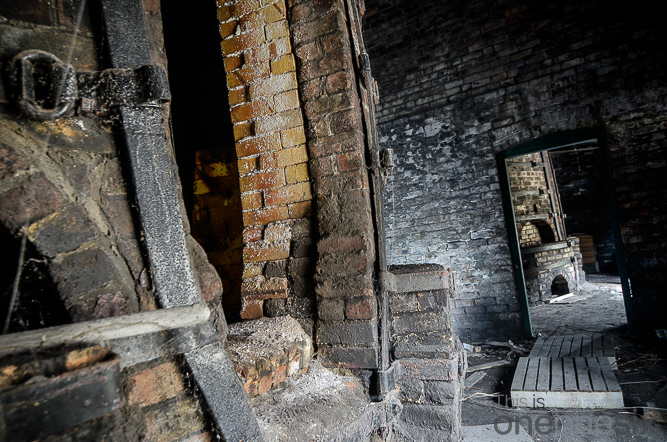
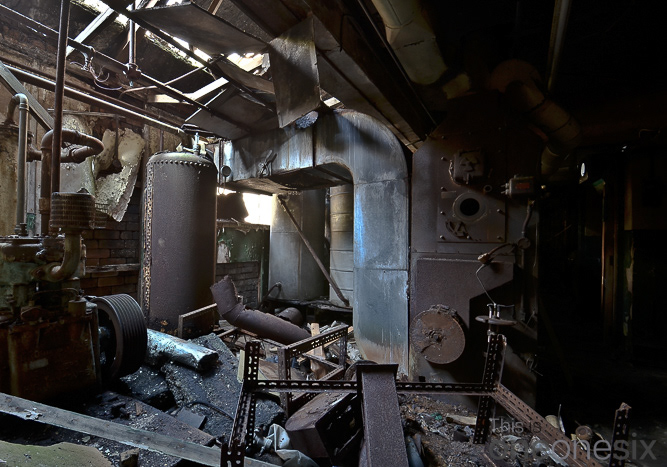
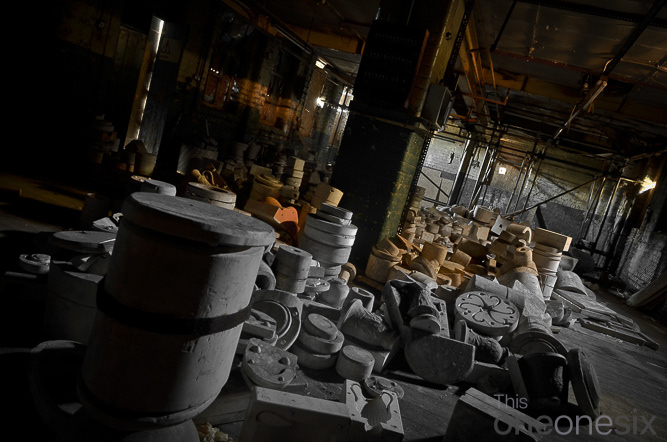

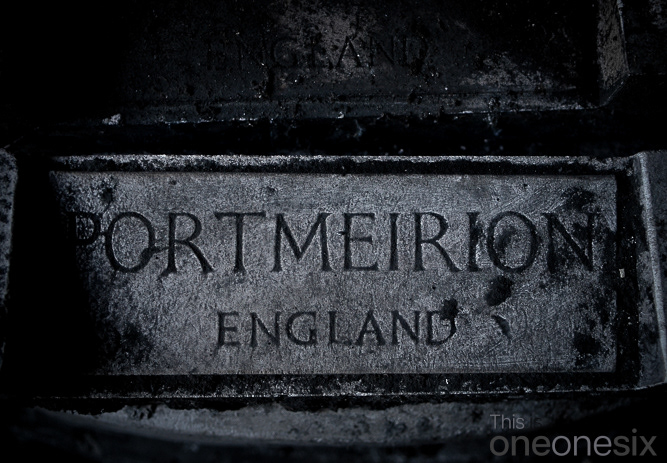
Armitage Shanks
Founded in the early 19th century, became one of Britain’s leading manufacturers of sanitaryware and bathroom fittings. Its Cliffe Vale site, known as the Excelsior Works, was a hub of innovation and production for much of the 20th century, supplying toilets, sinks, and bathroom ceramics across the UK and beyond. The works closed in 2007 when operations were consolidated at a modern facility in Middlewich, leaving these images as a record of a once-thriving industrial landmark.
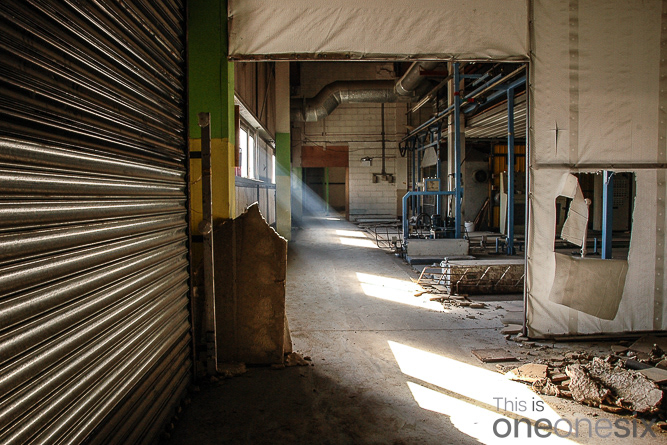
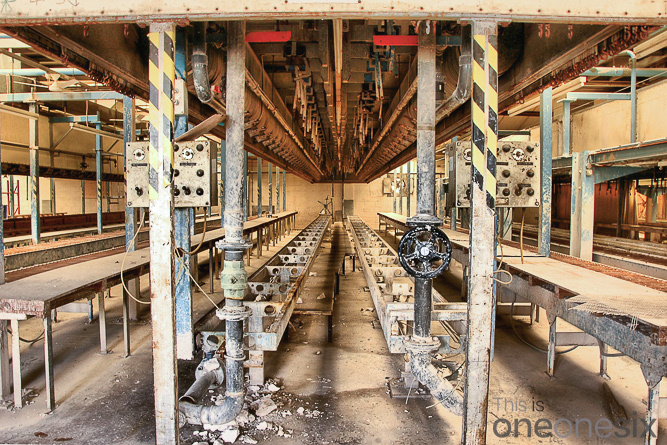
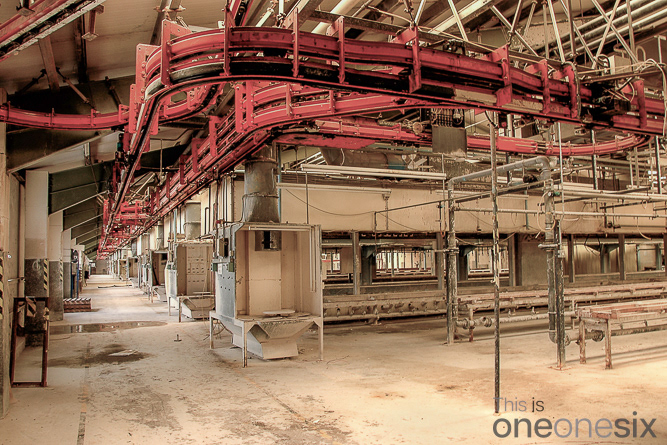
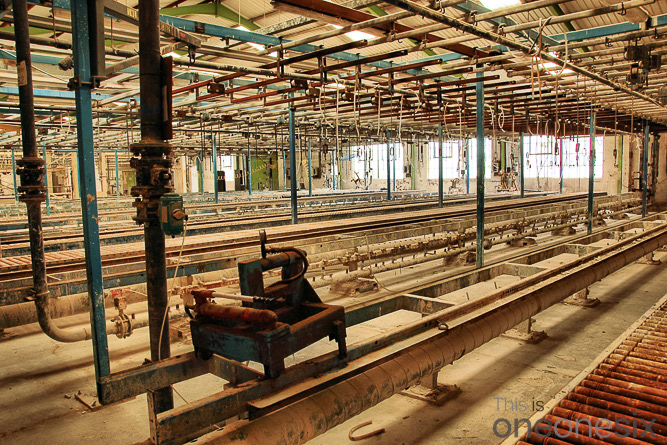

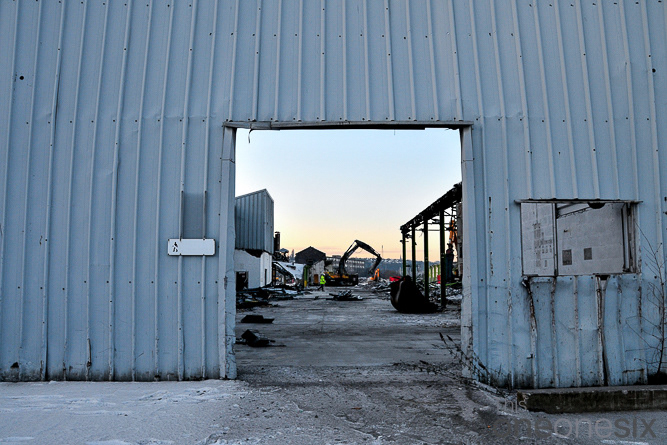
Middleport pottery
These images capture Middleport Pottery in its pre-renovation state, a time when the Grade II*-listed factory faced significant challenges. Established in 1888 by Burgess & Leigh, the site was the last working Victorian pottery in the UK. By 2011, it was at risk of closure due to deteriorating conditions and financial instability. Intervention came from The Prince’s Regeneration Trust, which secured a £7.5 million deal to preserve the historic buildings and traditional manufacturing techniques. This initiative not only safeguarded jobs but also laid the foundation for the factory's transformation into a thriving heritage and visitor centre.
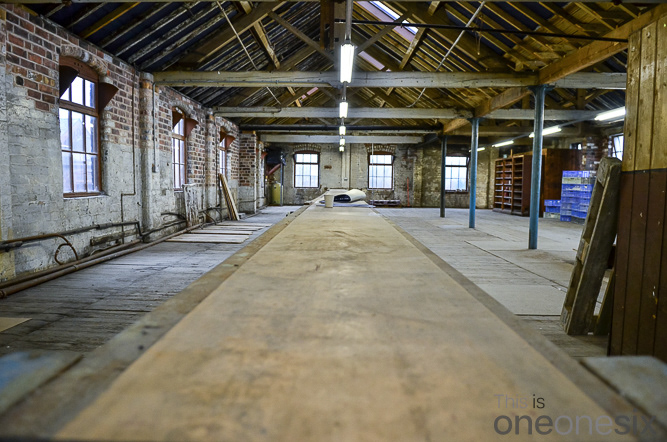
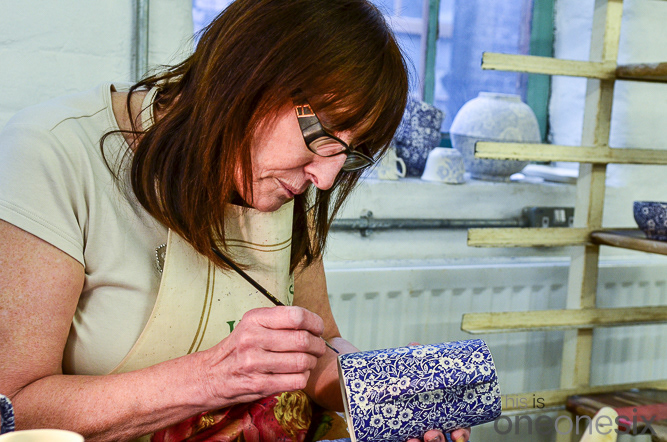
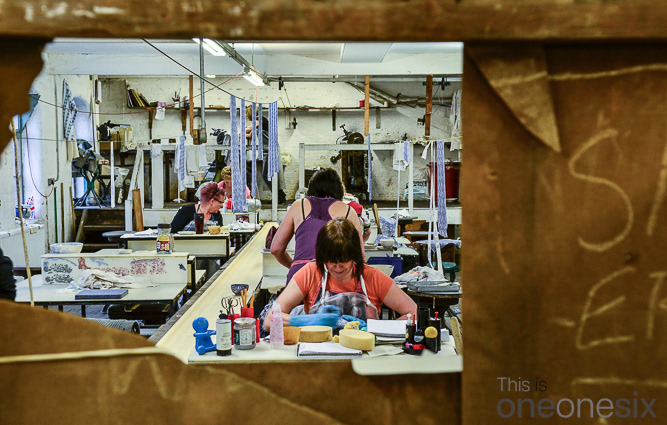
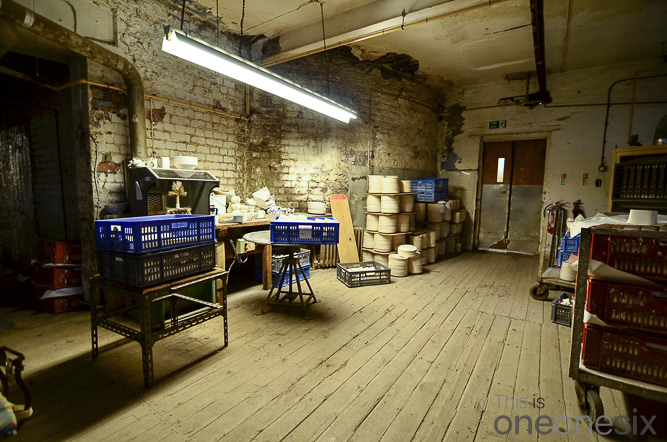
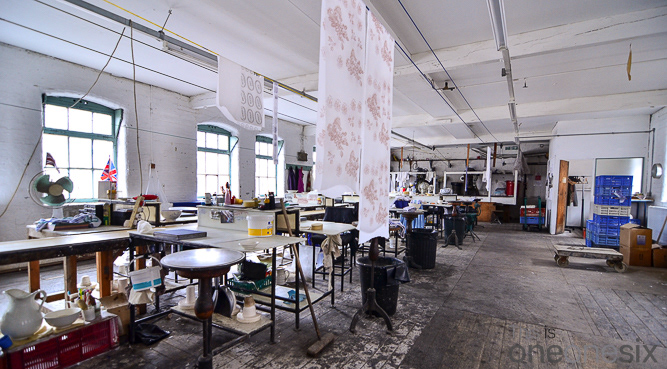
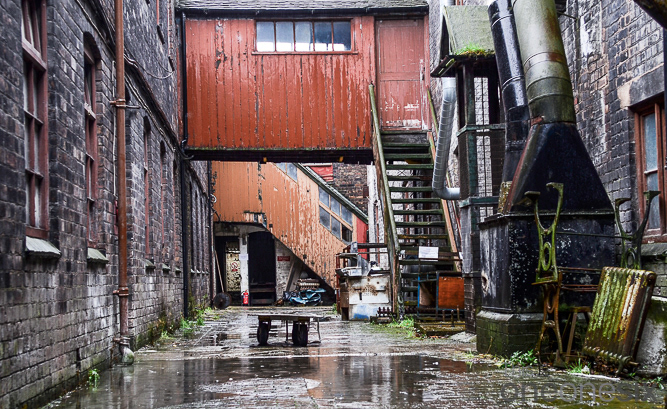
Through the Red Gates
Through the Red Gates is a personal journey into the heart of Spode, one of Stoke-on-Trent’s most iconic pottery factories. When the factory closed in 2008, its gates were locked, its machinery stripped out, and its buildings left to decay. But for me, that was the beginning. One chance encounter with Alan and Mick, the last two men left guarding Spode’s silent corridors opened the gates to a forgotten world. Inside, I discovered not just derelict workshops and scattered belongings, but the ghosts of generations who had lived and worked in clay, glaze, and fire.
Over countless visits, I wandered through the site, documenting what remained before it vanished. I found photographs pinned above benches, half-finished notes, negatives from film shoots, and crates of plain white ware that would become both kitchen crockery and blank canvases for my art. Along the way, I built friendships, uncovered hidden stories, and began piecing together the legacy of a place that shaped Stoke and its people.
This book is both a chronicle and a tribute: a record of what I found behind those red gates, and a reminder that Spode is not gone, not completely. Its spirit lives on in memory, in community, and now, in these pages.
Over countless visits, I wandered through the site, documenting what remained before it vanished. I found photographs pinned above benches, half-finished notes, negatives from film shoots, and crates of plain white ware that would become both kitchen crockery and blank canvases for my art. Along the way, I built friendships, uncovered hidden stories, and began piecing together the legacy of a place that shaped Stoke and its people.
This book is both a chronicle and a tribute: a record of what I found behind those red gates, and a reminder that Spode is not gone, not completely. Its spirit lives on in memory, in community, and now, in these pages.


